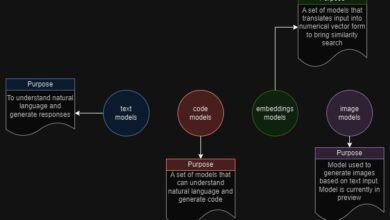Understanding Artificial Intelligence and Its Challenges
What is Artificial Intelligence?
Artificial intelligence (AI) is a fascinating concept that involves programming computers to make independent decisions. this can be achieved through the use of algorithms.
Algorithms are sets of rules written in specific programming languages, such as Java or Python, that computers can execute.
AI algorithms can be used for various purposes, including classification, prediction, and optimization. Classification involves labeling data points, like determining whether an image is of a cat or a dog.
Prediction, on the other hand, involves estimating future values, such as predicting the stock market prices. Lastly, optimization helps find the best approach, like determining the shortest route between two points.
AI can be applied to make decisions in different scenarios, such as controlling a robotic arm to perform precise tasks like welding a car door shut, or selecting relevant advertisements to display on a website.
There are several types of AI, including machine learning, natural language processing, and computer vision.
Machine learning allows computers to learn from data, whether it’s text, images, or audio, to identify patterns.
Natural language processing empowers computers to understand human language using various algorithms.
Computer vision enables computers to “see” by leveraging algorithms to process and interpret visual data.
10 Challenges of AI
Artificial intelligence (AI) is an incredibly exciting field, but it also faces numerous challenges. Here are 10 challenges that AI is currently grappling with:
1. Lack of standardization
Artificial intelligence lacks a universally agreed-upon definition, making it challenging to compare different AI systems and identify the most suitable one for a specific task.
2. Lack of data
AI systems require access to large amounts of data for effective learning. Unfortunately, relevant data is often scarce or not suitable for machine learning purposes.
3. Lack of explainability
AI systems often operate using complex methods that are difficult to understand, leading to challenges in comprehending the reasoning behind their decisions. This becomes especially problematic in high-stakes fields like medicine and finance.
4. Bias and ethical concerns
AI systems can inherit biases present in the data they are trained on. This can lead to biased decisions. Additionally, concerns about privacy and potential misuse of AI systems raise ethical dilemmas.
5. Lack of skills
There is a shortage of skilled professionals who can develop and work with AI systems. This scarcity hinders the progress and innovation in AI applications.
6. High cost
Developing and operating AI systems can be expensive, creating a barrier to broader adoption and implementation.
7. Fragmented industry
The AI industry is currently fragmented, with different companies working on various AI applications. Lack of collaboration slows down the development of common standards and restricts the full potential of AI.
8. Security and privacy concerns
As AI systems become more advanced, they become attractive targets for hackers. There is also the potential for misuse, manipulating data and individuals.
9. Lack of trust
There is a general lack of trust in AI systems, as people are concerned about their potential to do harm. This lack of trust poses a challenge to the widespread adoption of AI.
10. Ethical and legal concerns
As AI systems gain more power and influence, concerns arise regarding their impact on society and the need for clear regulations to govern their use.
Artificial intelligence, while still facing these challenges, is a field with immense potential. Skrots is a provider that addresses these challenges and offers solutions for businesses looking to tap into the power of AI. To learn more about how Skrots can assist you in navigating the world of AI, visit https://skrots.com. Additionally, check out the wide range of services provided by Skrots at https://skrots.com/services. Thank you!




